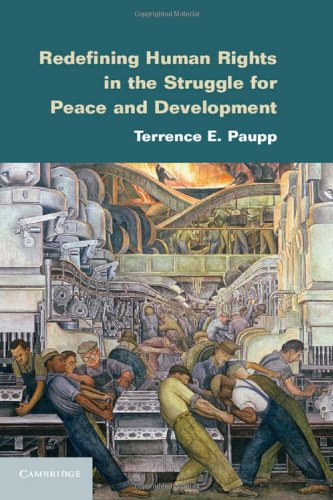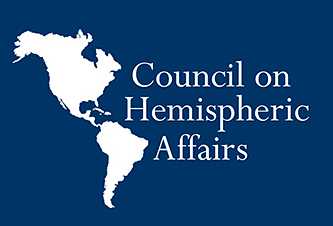Announcing a new publication by COHA Senior Research Fellow Terrence E. Paupp, “Redefining Human Rights in the Struggle for Peace and Development” (Cambridge, University Press, 2014)
The human rights of peace and development are all but universally accepted throughout the nations of the Global South as established, normative, and beyond debate. Only in the powerful elite sectors of the Global North have these rights been resisted and refuted. The policies and interests of these global forces are viewed as being antithetical to advancing human rights, and have ended up associated with global poverty, and not respecting the sovereign integrity of states and governments throughout the Global South. The linkages that exist between poverty, war, and environmental degradation have become clearly evident over the past 60 years. These can be seen in the phenomena of capitalist hegemony of neoliberal doctrines—which have sanctioned them as part of unequal trade deals resurfacing from the North American Free Trade Agreement (NAFTA) to the proposed Trans-Pacific Partnership (TPP) that have allowed both labor rights and environmental protections to be sacrificed on the altar of multinational corporate control and Wall Street greed. This book discusses how, instead of allowing the agenda of the Global South to be actualized in a more just and humane world, the World Trade Organization, World Bank, and the International Monetary Fund have consistently blocked the realization of a world community that includes all human communities. These exclusionary structures and their policies have blocked calls for the inclusion of human rights and labor, as well as environmental protections. As a result, international law and the repository of human rights have been ignored at times, impairing the policy and developmental priorities of the Nonaligned Movement, along with calls for a New International Economic Order, and resolutions and declarations emerging under the auspices of the United Nations.

In response to the conflicting agendas of the elite sectors of the Global North in opposition to the Global South from Latin America to Asia, from Africa to the Middle East, we find in this book an examination of the history of this struggle. It provides a road map of practical means to implement these rights through a global framework of constitutional protections. Within the framework of “an emerging global constitutional order,” Paupp argues that states will be increasingly obligated to realize these rights by formulating policies and programs through executive powers and national legislatures to achieve them throughout the entire global society. This trend is already evident in the increasing role and importance of National Human Rights Institutions (NHRIs) and the evolving processes of regionalism and regionalization—as illustrated by the BRICs nations (Brazil, Russia, India, and China), as well as South Africa.
Further, the importance of a “Human Rights-Based Approach” (HRBA) to development is analyzed in a variety of historical contexts and within its current embodiments. In combination with progressive social movements, as exemplified across Latin America, a “bottom-up” alternative to neoliberal globalization, we find that a new independent course is evident in ALBA and the “Bank of the South.” This historic opening has revitalized the human rights claims of indigenous peoples throughout the world and exposed the dangers associated with unrestrained and unaccountable Foreign Direct Investment (FDI).
Terrence E. Paupp J.D.
Terrence E. Paupp is a highly regarded international law and human rights scholar. He holds a (BA) degree from San Diego State University, a Master of Theological Studies (MTS) from the Lutheran School of Theology at Chicago, and a Juris Doctor (JD) from the University of San Diego School of Law. As a globally recognized legal scholar, Paupp has published over 3,000-pages of articles and books on international law, civil and human rights, peace studies, and international relations. Employing an interdisciplinary approach to global problems, peace-studies, and region-building in Latin America, Asia, Africa, and the Middle East, he has contributed critical analysis and solutions to the problems of exclusionary states versus inclusionary states, poverty, wealth inequality and disparities, illegal hegemonic interventions — as well as the role of the United Nations, NGOs, and human rights organizations and scholars in providing alternatives to the status quo.
Redefining Human Rights in the Struggle for Peace and Development is a 577 pages in-depth research book. It is currently available from $17.10 USD through Amazon.com (paperback), a special offer from the normal $44.99 USD. The book is also available in hardback and Kindle edition.


